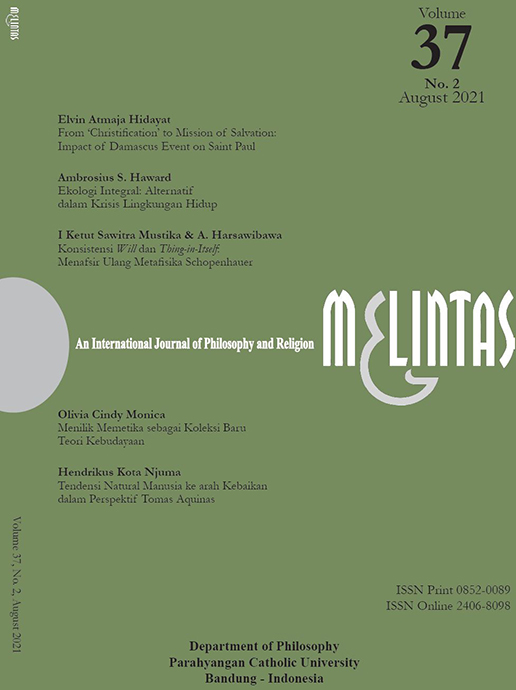Ekologi Integral: Alternatif dalam Krisis Lingkungan Hidup
DOI:
https://doi.org/10.26593/mel.v37i2.6295Keywords:
anthropocentrisme, eco-spirituality, integral ecology, ecology crisis, Laudato Si, Pope Francis, Leonardo BoffAbstract
Today’s ecological crisis is getting worse, and human activities might have been the main cause of the crisis. From a theological point of view, the spiritual crisis among the modern people can be thought of as the source of the devastating human activities. Pope Francis in his encyclical Laudato Si’ believes that mistaken anthropocentrism and technocratic paradigm are the main cause, while theologian Leonardo Boff points on the modern science experimental perspective and the attitude of negligence as the triggering characteristics that govern the modern people. Facing the ecological crisis which has its roots in human spiritual crisis, Pope Francis offers a model of an integral ecology, while Boff offers an eco-spirituality concept, as basis for human relation to the cosmos. Both concepts emphasise on the unity of all components that exist in the cosmos as God’s creation.
Downloads
Published
Issue
Section
License
Copyright (c) 2022 Ambrosius S. Haward

This work is licensed under a Creative Commons Attribution-NonCommercial 4.0 International License.
MELINTAS applies the Creative Commons Attribution (CC BY NC) license to articles and other works we publish. If you submit your paper for publication by MELINTAS, you agree to have the CC BY NC license applied to your work.


